Unfortunately, today children left without parents are by no means a rare occurrence. At the same time, in the Russian Federation today there are several options for their possible family arrangement:
- adoption;
- foster family;
- patronage or guardianship.
At the same time, the state, for its part, provides parents who have taken responsibility for such children with certain financial support. The amount of remuneration, as well as the care allowance paid for adopted child, depends on the above forms of family structure.
When adopting, the state does not provide for payment of labor to adoptive parents
Let's look at the options listed above in more detail. For example, during adoption, the state does not undertake any obligations to pay the adoptive parents. IN in this case This approach is quite logical. After all, after adoption, the persons who have taken responsibility for raising the child are transferred to full parental rights. The adoptive parent is warned about this in advance. Representatives of the guardianship authorities should provide him with the relevant information.
Foster parents who have adopted a child can only count on receiving a one-time benefit. The amount of this assistance is a little more than 13 thousand rubles. One of the parents receives it, and the benefit is paid immediately at the time the child is transferred to the adoptive family. The help is relatively small, but adults themselves must understand how responsible a step they are taking, and therefore they should rely primarily on themselves, and not on the state.
In addition to financial assistance, the state also provides parental leave. In particular, working parents receive it for the period from the moment of adoption until the expiration of certain period 70 calendar days from the day the adopted baby is born.
However, there are situations when adoptive parents take 2 or more children. In this case, care leave is 110 days from the date of birth of new family members. But that's not all. There is another option for parental leave - it is provided until the child turns 3 years old.
Features of state support for adoptive families
Let's look at another option. We are talking about placing a child in foster family. Here, future parents should first of all enter into an appropriate agreement with the guardianship and trusteeship authorities. After all formalities have been settled, the children are transferred to a foster family based on this document. At the same time, the specific period of their stay is indicated here.
Also worth noting is one important point. When placing a child in a foster family, new parents are not subject to such stringent requirements as during adoption. Accordingly, many are inclined to choose this option. We should also not forget that the state pays for the work of people who decide to become foster parents. By the way, they can be not only married couple, but also lonely people. One of the main points here is the desire to raise a child and the awareness of all the responsibility.
The selection of citizens who have expressed a desire to take on such serious responsibility as raising other people's children, as well as their preparation and registration, is carried out in accordance with federal legislation and the norms of the Civil Code of the Russian Federation. The agreement drawn up in this regard must certainly indicate information about the child who is being transferred to a foster family: full name, age, mental and physical development. The document also stipulates a number of other points, such as conditions of detention, education and upbringing. The responsibilities and rights of the parents, as well as the guardianship authority, must also be outlined. The contract must indicate the duration of its validity, grounds for termination, and possible consequences such a step.
Now let's talk about government assistance to such families. First of all, I would like to note here that parents who founded a foster family under the terms of an appropriate agreement are entitled lump sum allowance in the amount of a little more than 13 thousand rubles. Here, as we see, there are no differences from the adoption option. In addition, monthly foster parents a benefit is paid in the amount of 40 percent of the adoptive parent’s salary for the reporting period. This is not all types of help. Parents are also paid funds to compensate for the costs of an adopted son or daughter that were made during the reporting period.
Well, one more important point. We are talking about the salary of a foster parent. It is difficult to give a specific figure here, since its size depends on the region in which the family lives. In addition, local authorities may provide certain benefits to such families. Funds for this are allocated from regional budgets.
Features of state support for guardians and foster carers
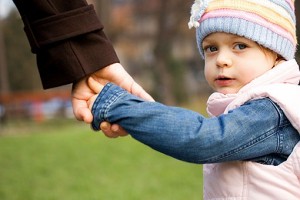 There is another option to foster a child. We are talking about establishing guardianship or patronage over him. It is worth emphasizing one important point right away. Neither guardians nor foster carers are paid a salary for their work by law. In such cases, the state pays only a one-time benefit - a little more than 13 thousand rubles. It is received at the time of handing over the child.
There is another option to foster a child. We are talking about establishing guardianship or patronage over him. It is worth emphasizing one important point right away. Neither guardians nor foster carers are paid a salary for their work by law. In such cases, the state pays only a one-time benefit - a little more than 13 thousand rubles. It is received at the time of handing over the child.
This article will talk about the benefits that are available to people who have adopted children and single mothers.
It is important to understand the difference between an adopted and a foster child, because payments will depend on this. The adopted child is included in new family as a native. Accordingly, adoptive parents have the right to the same payments as biological parents: 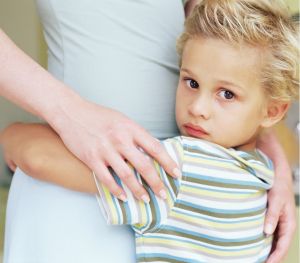
- Its size is 13,741 rubles. For registration you need:
- Photocopy of the work record ().
- Payments that are made every month until the adopted child turns 1.5 years old. For the first one 2543 rubles, for the second one – 4651 rubles. Documents:
- Statement.
- Passport.
- Documents confirming adoption.
- Papers confirming status.
- Increased adoption allowance. It is paid once, but to those who have adopted a disabled child or siblings. The payment amount is 100,000 rubles.
A foster family supports a child until he is 18 years old or until he graduates. Such families can count on the following benefits:
- Payment made every month for adopted child. Its size is 40% of the average salary.
- One-time payment in the amount of 13,741 rubles.
- Payments due to orphans.
The last point includes lump sum payments An 18-year-old, if he was under guardianship or trusteeship (24,000 rubles), after employment (about 80,000 rubles). If a child decides to continue his education after school, he is entitled to a one-time payment in the amount of 20,000 rubles.
Benefits
In addition to cash payments, a family that has custody of a child has the right to the following benefits:
- Reimbursement of payments for housing and communal services.
- Children under 2 years old are provided with free dairy products.
- For an abandoned or abandoned child, compensation is provided, paid every month.
- Children have the right to free textbooks, 50% towards payment kindergarten, free two meals a day at school, from 14 years of age - housing registration.
Innovations for adoptive parents and guardians:
Russians who have adopted a child or even several children can receive all the payments due to ordinary parents. In addition, they are also provided special benefits at the state and local level.
Types of benefits
The variety of payments is divided into the following categories:
1. all-Russian - paid to all adoptive parents in Russia,
2. additional - issued by local authorities.
TO state benefits include:
1. maternity benefit,
2. one-time adoption benefit.
3. allowance for caring for a baby up to 1.5 years old.
Local authorities may also pay adoptive parents a lump sum allowance if this is the case in the area.
All-Russian benefits
Maternity benefit is assigned to adoptive parents if the baby is under three months old. These payments can be received by both working mothers and other categories of women. In addition, if necessary, they are assigned to a working father. The benefit is valid for 70 days after the birth of the child, and for 110 days when adopting several children. The amount of payments from February 1, 2017 is 16,412.38 rubles.
What documentation do I need to provide? Adoptive parents must have: a birth certificate of the baby, a court decision on adoption, a certificate from the work of the second parent, which will indicate that he did not receive benefits, an application with the specified type of leave and duration.
One-time adoption benefit may be assigned to one of the parents when placing a child whose age does not exceed 18 years. When multiple children are adopted, payments are made to each of them.
Necessary documentation to receive benefits: application, court decision on adoption, certificate of non-receipt of a one-time benefit.
The payment amount is 16,412.38 rubles. If children with disabilities or brothers and sisters are placed in foster care, then the adoptive parents are entitled to 125,403.95 rubles for 2016. You must apply for benefits within six months from the date of adoption.
Allowance and leave to care for a baby up to 1.5 years assigned to adoptive parents until the child reaches one and a half years old. It can be received by a working mother, or another family member caring for the baby, as well as a non-working woman, if she provides a certificate of non-receipt of benefits from the employment center. You can use the leave in parts or in turn by the child’s relatives.
It is worth remembering that you can apply for payment within two years from the date of birth of the baby. Working citizens are paid benefits according to place of work, and non-working - social protection authorities.
You might also like:
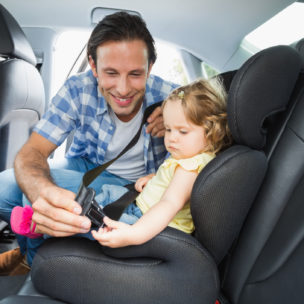 Can a booster seat be used instead of a car seat in 2017?
Can a booster seat be used instead of a car seat in 2017?
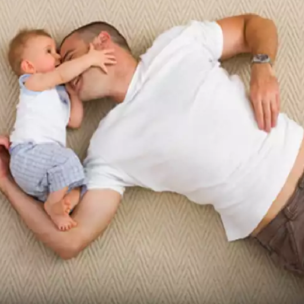 How to apply maternity leave on the husband if the wife wants to go to work
How to apply maternity leave on the husband if the wife wants to go to work
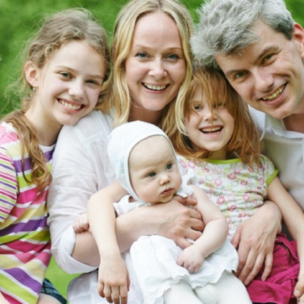 Benefits and allowances for large families in 2017 in Novosibirsk
Benefits and allowances for large families in 2017 in Novosibirsk
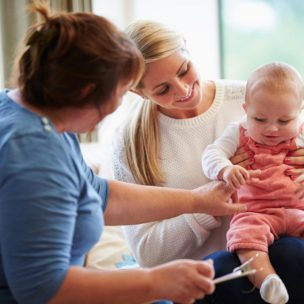 What support is there from the state for a young family in 2017 in the Russian Federation?
What support is there from the state for a young family in 2017 in the Russian Federation?
 How to protect a child from a teacher at school (from teacher arbitrariness)
How to protect a child from a teacher at school (from teacher arbitrariness)
 Alimony for a disabled child during a divorce in 2017
Alimony for a disabled child during a divorce in 2017



